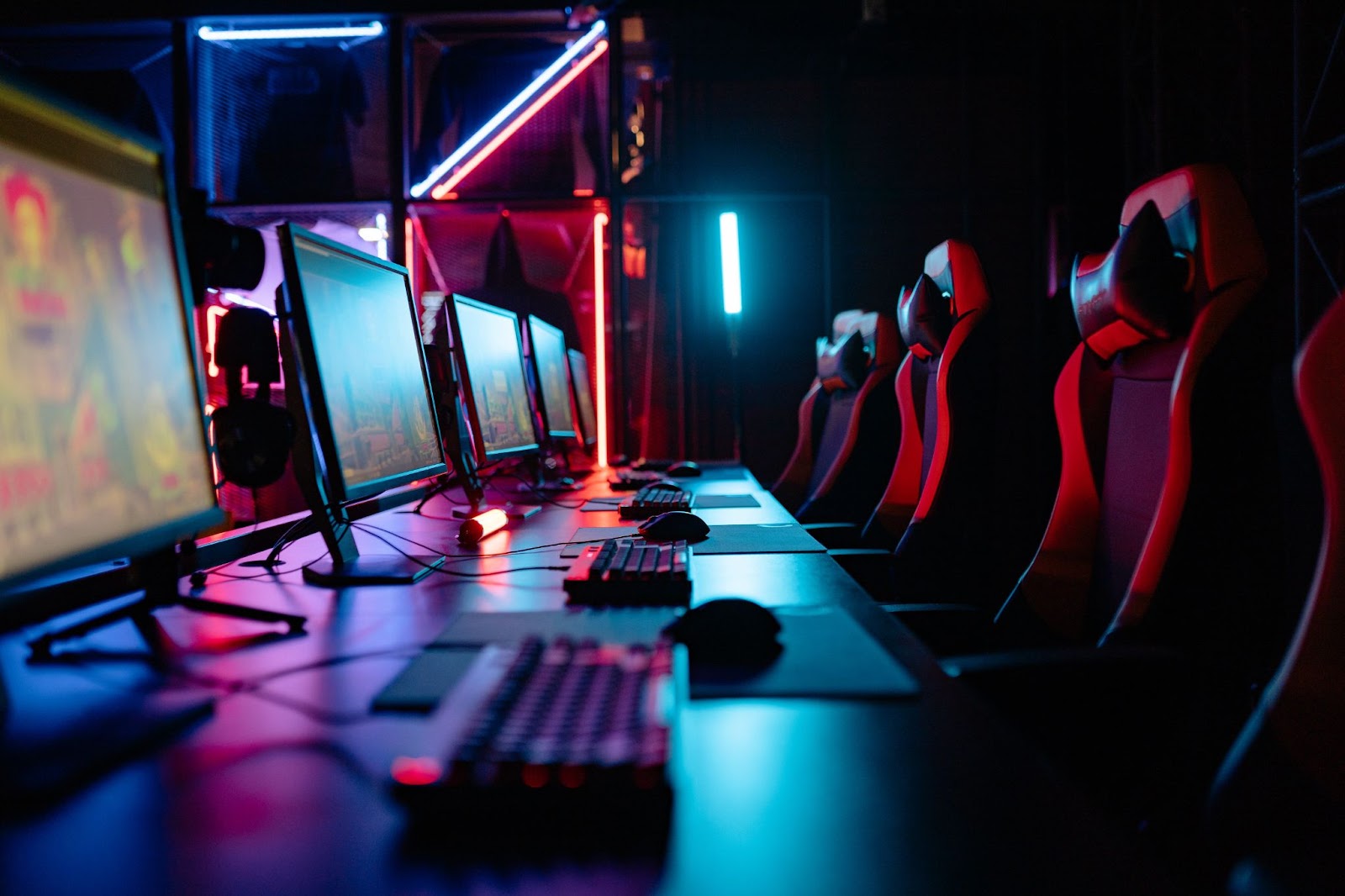
The integration of esports into the Olympics is an idea that has been discussed for some time now. With the increased popularity of esports and its potential to become a major tournament or sport, many have advocated for it to be included in the Olympics. However, there are some challenges that must be addressed before the integration can be successful. In this article we will look at some of those challenges and the potential for esports in the Olympics.
Esports Should be in The Olympics
Esports, in its broadest definition, is any type of competitive video game or digital sport played up to a professional level. This can include massive multiplayer online games such as League of Legends and NBA2K, first-person shooter games such as Call of Duty and Halo and even real-time strategy (RTS) games such as Starcraft are considered esports. It is a rapidly growing, global industry that has drawn millions of viewers online and on television for major tournaments. At the center of the debate for esports inclusion in the Olympics is the qualifications for a sport vs. what can be classified as an esport. While many people categorize unrelated activities such as pool playing and chess as sports, most would not qualify those activities as an esport due to their lack of physical involvement. However, this barrier may be diffused due to measures taken by game developers to ensure game balance and encourage competition among players by introducing changes in control input or console support over time — something traditional sports understand too as they also evolve through rule changes from year-to-year.
Challenges of Integrating Esports Into The Olympics
With the rapid growth and popularity of esports, many are asking the question if esports should be integrated into the Olympic Games. Integrating esports into the Olympics would provide even more opportunities for the industry and create further opportunities for athletes who compete in esports. However, there are several challenges that must be addressed before esports can become part of the Olympics. These challenges include balancing the Olympic Games with esports events, establishing esports broadcasting rules and regulations, and finding a way to ensure fairness amongst competitors. Let’s take a deeper look into the challenges of integrating esports into the Olympics.
Lack of Recognition
The lack of recognition of Esports as a legitimate form of sport by the International Olympic Committee (IOC) has often been raised as a primary challenge in integrating Esports into the Olympics. Not only have games such as Counter-Strike and League of Legends been viewed with suspicion, but they have also been seen as lacking the traditional elements associated with sport that the IOC considers important: physical activity, competition, and sportsmanship. Furthermore, some countries are slow to recognize esports even at a national level. This is especially true for countries where gaming is not mainstream or where laws are restrictive towards it. Without adequate national recognition, there can be no meaningful integration of esports into the Olympic Games. Another challenge is one of visibility. Unlike traditional sporting events such as athletics or swimming which can be readily followed in televised events and on social media platforms, many Esports niche audiences tend to be more spread out across various platforms and genres. This means that there is limited coverage available for potential audiences outside these specific niches to comprehend what’s happening during an Esports tournament at any given time and follow suit when tuning into Olympic tournaments featuring competitive gaming down the line. In order for any legitimacy of competitive gaming to flourish within its host countries hosting competitions and tournaments including the Olympics, making competitive gaming more accessible while increasing visibility will be critical to its success moving forward.
Difficulty in Establishing Rules And Regulations
The difficulty in integrating esports into the Olympics is primarily due to the lack of established rules and regulations. This makes it difficult to find a unified set of standards and guidelines that can apply across all games and genres. Additionally, due to the constantly evolving and rapidly changing nature of the video game industry, it can be difficult for Olympic organizers and regulators to keep up with technological developments in certain games or genres. Furthermore, there is currently no governing body overseeing esports which has resulted in massive discrepancies between countries and regions when it comes to issues such as what constitutes an official match, who may participate in tournaments, how prize money is distributed, how players are regulated and many others. Without any single authority that sets global rules and regulations for esports, it becomes impossible for the Olympics to properly integrate them into their organization.
This lack of structure not only presents difficulties from a legal standpoint but also from a public relations standpoint as well as various issues such as violence or cheating could become major political scandals if left unchecked by proper authorities. The issue has become more urgent recently as more countries have embraced esports, but so far no international governing body overseeing esports has emerged and with no one taking responsibility for setting unified rules for all countries it’s looking increasingly unlikely that esports will be integrated into the Olympics anytime soon.

Issues With Sponsorship And Funding
The Olympic Games are steeped in tradition, and are funded by the International Olympic Committee, through sponsorship and broadcast deals with television networks. Esports is a much newer ideology compared to the traditional sports that have been part of the Olympics for decades. Therefore, when it comes to finding sponsors for esports events at the Olympics, there can be challenges. Funding for esports tournaments and competitions generally comes from private sponsors such as gaming companies and online streaming platforms. Some of these companies do not currently have ties to the IOC or any governing body within the Olympic movement. This could present challenges in both onboarding new sponsors in time for an Olympics event as well as ensuring that existing sponsors meet all IOC standards and regulations. The value proposition of sponsoring esports at an international sporting event may not be immediately clear to some potential new partners either. Many gaming companies are only familiar with domestic and regional tournaments and may not fully understand how their involvement in an international competition could benefit them in terms of reach or brand awareness. This can make it more difficult to acquire funding through established Olympic channels, although private investors may ultimately step up to provide the required backing.
Difficulty in Establishing a Global Standard
One of the key challenges in integrating esports into the Olympics is that it involves creating a global standard for the games and competitions. As esports can vary from region to region, there needs to be uniform rules that are followed everywhere, which will involve collaboration between game developers, tournament organizers and other stakeholders. This is easier said than done as different countries have their own cultural preferences when it comes to choosing what competitive titles they allow. Additionally, many of the more established competitive titles already have their own professional circuit that could lead to conflict over regulation and endorsement when trying to merge these platforms with the Olympic Games. To establish a global standard for competition requires direct involvement from each government as well as Olympiad specific regulations. Furthermore, in order for esports events to be carried alongside traditional sports events such Olympic Judo and Wrestling, an evaluation system must be implemented that fairly measures individual efforts across multiple games or genres – regardless of whether those genres or games are popular or have broad appeal. This is a substantial challenge given that many games may focus on team-based elements or require cooperation among multiple players, including those not directly involved in competing within an Olympic setting.
Finally, potential health risks associated with gaming must be evaluated carefully before making esport titles part of any official programming – this assessment process may require extra advice from medical experts as well as health authorities – adding further complexity to the integration process.
Potential Solutions
Esports has become a global phenomenon and is a rapidly growing industry. With its immense popularity, many people now believe that it should be included in the Olympics. However, the challenges of integrating esports into the Olympics are numerous and complex. This article will explore potential solutions to this problem.
Establishing a Global Regulatory Body
The creation of an all-encompassing global regulatory body to manage, organize and oversee the implementation of esports into the Olympics could be a key step in ensuring success for this initiative. This body would need to be made up of representatives from key stakeholders including sports organizations, game publishers, tournament organizers, professional esports athletes and the Olympic Council itself. The body would be responsible for setting rules and standards around governance, participation eligibility and competition formats that span across all facets of the esports industry. Furthermore, this governing board would ideally have representation from multiple nations and regions to ensure fair representation across countries around the world. While creating such a governing board may seem like a daunting task given the complexities and varying interests at play within the industry, it could ultimately prove immensely beneficial in bringing esports onto an international stage like the Olympics – establishing fair regulations and organizing competitions to create parity between players from all countries. Additionally, a global regulatory body could serve as an international voice for pro-esports initiatives such as promoting accessibility within gaming communities around the world. Ideally this board’s main objective should remain centered on advancing esports as an internationally recognized form of competitive sport that can uphold similar core values that major leagues do today.
Increasing Public Awareness And Education
Integrating esports into the Olympics should be strategic and informed. To do so, it is important to ensure that there is a wide range of public awareness and understanding. The International Olympic Committee (IOC) can create partnerships with prestigious international organizations that can promote and integrate esports into the Olympic Games. This will help create a positive atmosphere surrounding video game competitions, allowing for more people to participate. Further, public education on the subject of esports must be done to raise awareness and facilitate successful integration of esports into the Olympics.
The IOC should develop seminars or webinars about esports for organizations or educational institutions in order for people to receive an in-depth understanding of the matters at hand. Events such as these could provide a platform through which Olympic officials could discuss potential strategies related to integrating esports into the Games, while also providing an opportunity for members of the public to ask questions and become better informed on the matter. Additionally, there should be plenty of material available (online or in print) that can provide general information about video games and effects on participants — from physical health effects, player psychology to legal regulations. Such material is essential in creating more awareness amongst stakeholders who may not have an extensive understanding about video gaming or what it might involve for athletes engaged in these sports competitions.

Securing Funding And Sponsorship
The International Olympic Committee (IOC) has raised concerns about securing funding and sponsorships for esports being incorporated into the Olympics, and has expressed reservations about licensing games from private developers. If esports were to be added to the Olympic Games, it wouldn’t only involve creating rules and regulations for the competition, but also developing a solution to address this dilemma. One potential solution would be for private developers of esports titles to become official Olympic sponsors. While this could ameliorate concerns about licensing issues, acquiring support from private companies could result in limited control over the commercialization of popular esports titles, thus reducing revenue potential from broadcast rights and other sources. In a more open avenue, generated funds can be obtained by incorporating athlete fees as part of an Olympic sports organization’s budget. This would ensure that revenue is being gathered through fans; however, it places direct economic pressures on teams participating in tournaments or championships as paying fees to join competitions could potentially damage team performance and ultimately discourage participation by high-level athletes. Another possible source of financial support is governmental bodies at both national and international levels. Governments may provide funding which reduces the financial burdens upon players; however receiving sponsorship or financial support could make governing bodies susceptible to compliance risks due to predatory recruiting practices associated with unestablished third parties – such as maltreatment towards talented up-and-coming individuals within an esports community – often employed within unregulated international environments.
Conclusion
In conclusion, the integration of esports in the Olympics has its own challenges. Esports is a rapidly growing industry, and its global recognition is increasing every day. However, due to the diverse landscape of the esports industry, it can be difficult for the Olympic Committee to decide which games to add and how to regulate them. Moreover, there are also concerns about game fairness, inclusion, and spectator engagement that need to be considered before any decisions are taken.




